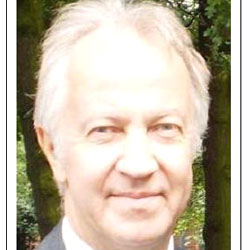How Sport Must Play the Game with Right to Freedom of Speech – Keir Radnedge
June 3, 2013
Events in places as disparate as London, Istanbul and the holiday island of Mauritius over the past 10 days have pointed up the indivisibility of sport and politics.
The sporting fall-out of protest demonstrations in all three centres have illustrated the significantly central role played by high-profile professional sport in modern society.
In London the annual congress of the European football federation took place to the accompaniment of modest protests, out on the street, by two causes: one was a pro-Palestinian demo objecting to the staging of the UEFA under-21 finals in Israel, the second was a workers rights demo objecting to staging of the 2022 World Cup in Qatar.
Gate crashers
Both street protests went off peacefully though two anti-Israeli activists were arrested and detained briefly later after gate-crashing the official UEFA dinner.
Subsequently a further anti-Qatar 2022 protest was staged outside FIFA Congress in Port Louis on Friday.
The protesters, eight in number, set up three banners near a side entrance to the SVI Convention Centre at least quarter of a mile from the main gate through which the FIFA delegates were bussed.
In a ridiculously over-the-top response, they were all arrested by local police and held, without charge, in Port Louis police station before being released after seven hours.
 The issue of workers’ rights in not only Qatar but the Gulf states in general is one which has been exercising the International Trade Union Convention for some years.
The issue of workers’ rights in not only Qatar but the Gulf states in general is one which has been exercising the International Trade Union Convention for some years.
The Mauritius police action provided the campaign with extra publicity and profile through the subsequent international media coverage of the arrests.
Olympic outreach
Simultaneous events in Istanbul did not concern sport directly.
However, a day after Istanbul sports leaders had told the Olympic movement [in St Petersburg] of its potential delights as a host to the 2020 summer Games, reports of riot police rampaging through peaceful demonstrators were ill-timed, to say the least.
What began as an environmental protest over plans to build a shopping centre on the site of a city-centre park aggregated concerns over curbs on alcohol sale and even a row about kissing in public. One local report assessed them as the worst riots in a decade.
Sport has a unique ability to cut through differences of race, religion, culture and politics. This is because although it is a common denominator, it is inclusive . . . not exclusive.
Keir Radnedge has been covering football worldwide for more than 40 years, writing 33 books, from tournament guides to comprehensive encyclopedias, aimed at all ages.
His journalism career included The Daily Mail for 20 years as well as The Guardian and other national newspapers and magazines in the UK and around the world. He is a former editor, and remains a lead columnist, with World Soccer, generally recognised as the premier English language magazine on global football.
In addition to his writing, Keir has been a regular analyst for BBC radio and television, Sky Sports, Sky News, Aljazeera and CNN.
Keir Radnedge’s Twitter: @KeirRadnedge
{jcomments on}

